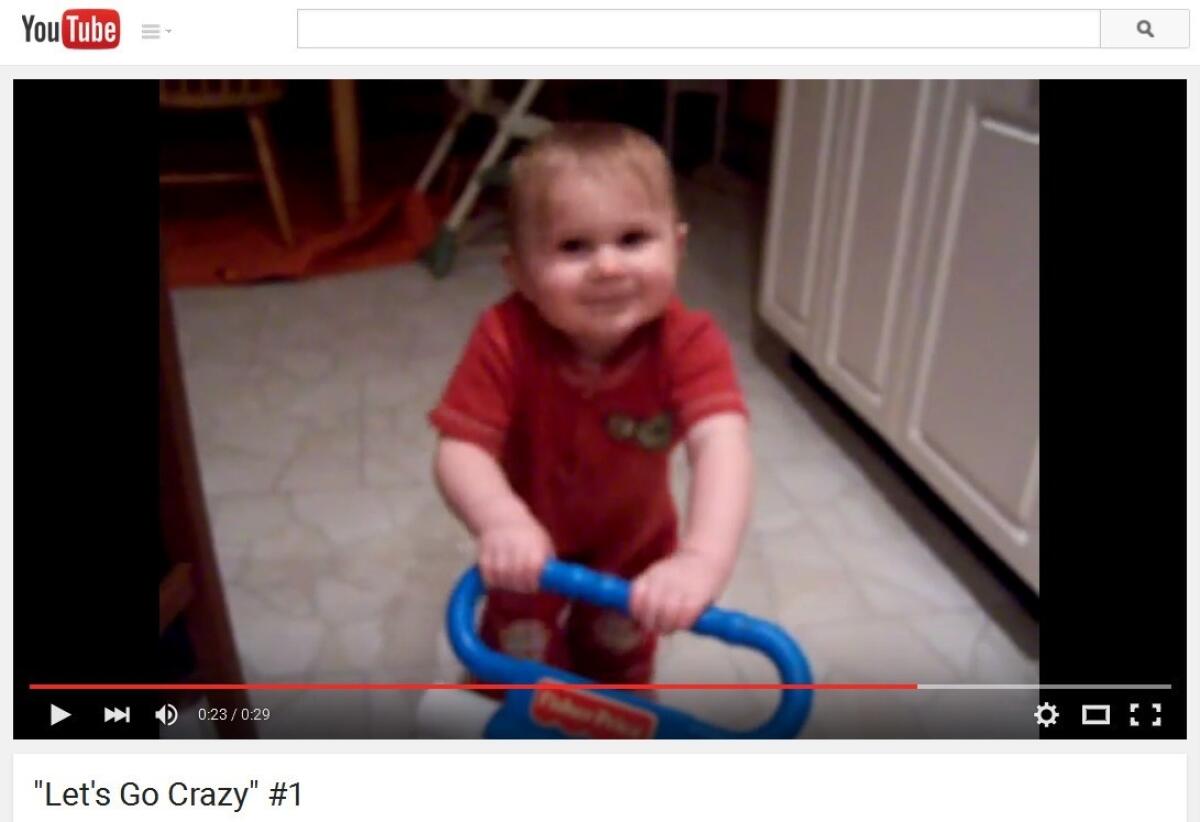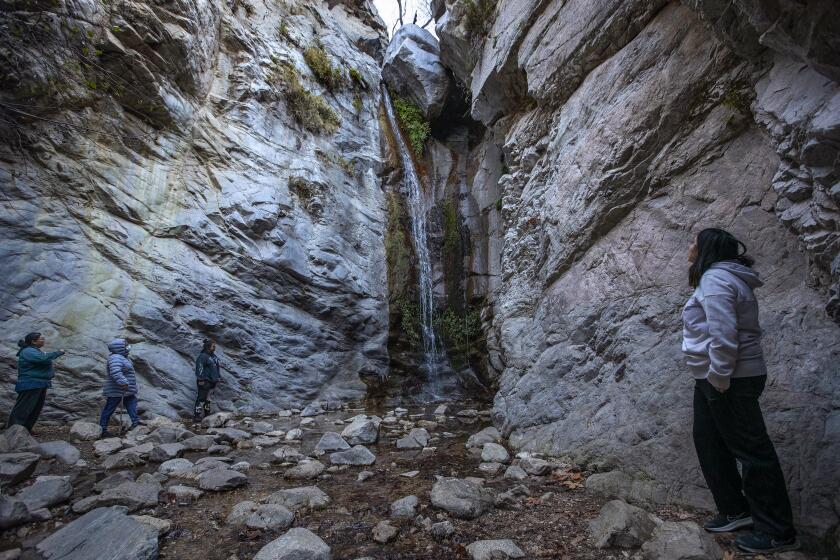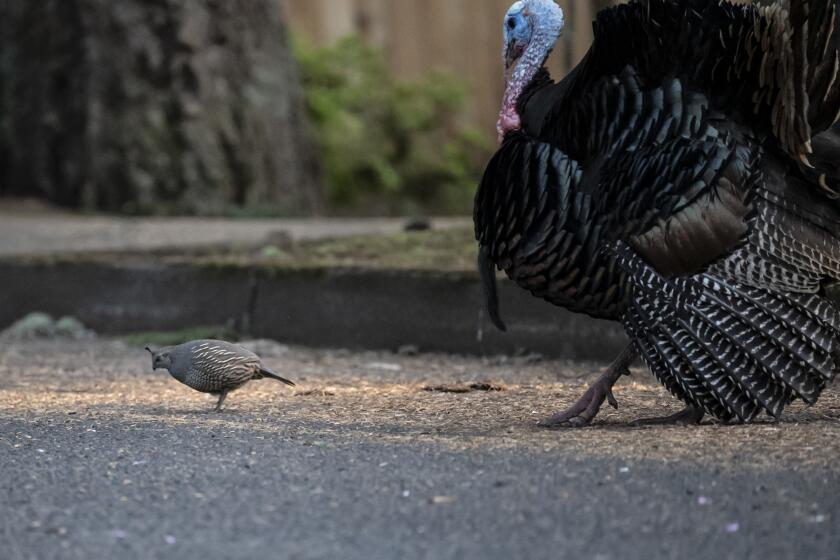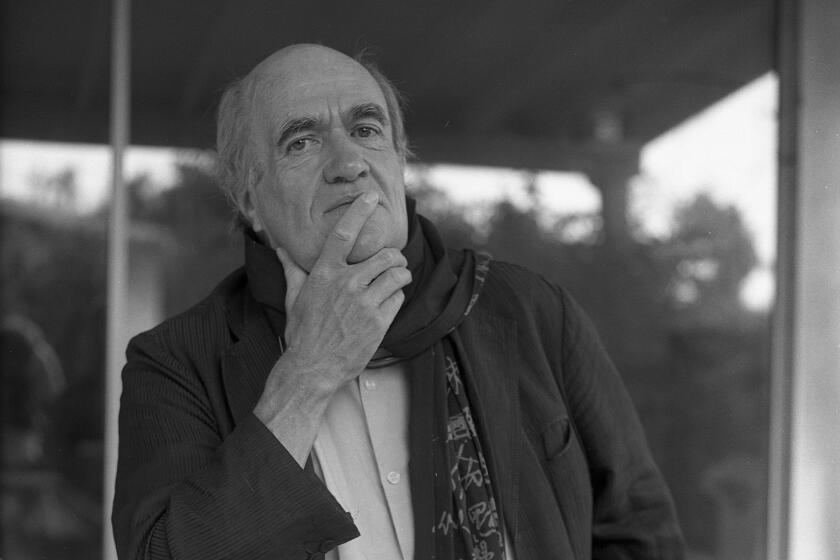Opinion: 9th Circuit throws a wrench in anti-piracy efforts

This is a screen grab from the “dancing baby” video that became the basis for an important copyright-law ruling by the 9th Circuit Court of Appeals Monday.
Major movie and music companies often complain that federal copyright law makes it too hard for them to fight online piracy. On Monday, the U.S. 9th Circuit Court of Appeals made its job a bit more difficult, ruling that copyright holders must consider whether an apparent infringement online is actually a fair use of their work before asking an Internet service provider or website to take it down.
The ruling is likely to have the most impact on content owners that use automated anti-piracy systems that send out flurries of takedown notices for the apparent bootlegs they find online. On the other hand, some content owners have already built fair-use determinations into their anti-piracy efforts, so they won’t be thrown off by the 9th Circuit’s holding.
The decision came in the long-running lawsuit brought by Stephanie Lenz against Universal Music, the largest of the major record companies. In February 2007, Lenz posted on YouTube a 29-second video of her two toddlers cavorting in the kitchen while Prince’s “Let’s Go Crazy” played in the background. The star was Holden Lenz, then 18 months old, who bopped up and down while pushing a toy stroller.
Universal, which was in charge of enforcing the song’s copyrights, instructed YouTube to remove the video, claiming it was infringing. After Lenz asked YouTube to restore the clip, Universal objected and insisted that the video was an unauthorized use of the work. Lenz sued, claiming the clip was removed improperly and she suffered damages as a result.
The clip itself isn’t much, but Lenz’s attorneys -- the Electronic Frontier Foundation and the law firm of Keker & Van Nest -- used it to try to slow the torrent of takedown notices filed by copyright holders. They argued that the 1998 Digital Millennium Copyright Act, which enabled the speedy removal of allegedly infringing material from the Internet without a judge’s intervention, required that copyright owners at least consider whether a disputed work was a fair use before sending the takedown notice.
The problem with such an approach, Universal argued, is that only the courts can decide whether a particular bit of copying is a fair use. The law sets out a four-part test for judges to apply, but the test is subjective. That’s why the record company argued that copyright holders shouldn’t be required to consider fair use until after an item is taken down, if and when the owner of the disputed work files a request to have it put back online.
Nevertheless, a three-judge panel for the 9th Circuit agreed with Lenz. In order to send a takedown notice, the statute requires copyright holders to make a good-faith determination that a work “is not authorized by the copyright owner, its agent, or the law,” Circuit Judge Richard C. Tallman wrote in the ruling. “Fair use is not just excused by the law, it is wholly authorized by the law,” he added.
According to the panel, this ruling marks the first time a circuit court has spoken on the issue.
Universal acknowledged that its employees did not consider whether Lenz’s video was a fair use before sending YouTube the takedown notice. That admission was enough to persuade one of the panel’s three judges, Milan D. Smith Jr., to argue that the court should hold Universal liable for knowingly misrepresenting that it had a good-faith reason to believe the clip was infringing.
The other two judges disagreed, noting Universal’s contention that it performed what amounted to a fair-use test by considering other factors before it sent the takedown notice. As a result, the two sides will go to trial to resolve whether Universal is liable and, if so, for what damages.
And on that question, the judges said, courts should give plenty of deference to the copyright holder’s judgment. That means courts are likely to impose penalties for excessive takedown notices only when copyright holders completely ignore the question of fair use.
“If ... a copyright holder forms a subjective good faith belief the allegedly infringing material does not constitute fair use, we are in no position to dispute the copyright holder’s belief even if we would have reached the opposite conclusion,” the judges wrote.
In a prepared statement, the Recording Industry Assn. of America -- the major record companies’ trade group -- said it was pleased with the court’s ruling that judges “may not second-guess a copyright owner’s good-faith belief” that a use is infringing. But it also lamented the “burden the court places on copyright holders before sending takedown notices.”
Corynne McSherry, legal director of the EFF, said it will still be possible for copyright owners to use some automated tools to go after online pirates. For example, they can send out notices automatically for files that duplicate ones already taken down, or whose audio and video substantially match their works.
“Plenty of rights owners are already doing this kind of thing,” McSherry said. What they can’t do, she added, is automate the process in a way that prevents them from identifying fair uses, which Universal’s approach did.
In a prepared statement, the EFF said the decision should also help candidates in hotly contested races, which historically see a rash of frivolous takedown notices. For example, a campaign commercial that includes an audio or video clip of a candidate speaking on a news program can draw a takedown notice from the broadcaster that owns the clip.
It may be hard for the public to feel aggrieved when copyright owners make attack ads disappear from the Internet. Nevertheless, the fair use doctrine is crucial to preserving the public’s free speech rights, whether it be campaign commercials or short clips of babies dancing for their families. And in the 9th Circuit’s turf, at least, copyright owners are now on notice that they ignore fair use at their peril when they send out takedown notices.
Follow Healey’s intermittent Twitter feed: @jcahealey
More to Read
A cure for the common opinion
Get thought-provoking perspectives with our weekly newsletter.
You may occasionally receive promotional content from the Los Angeles Times.







